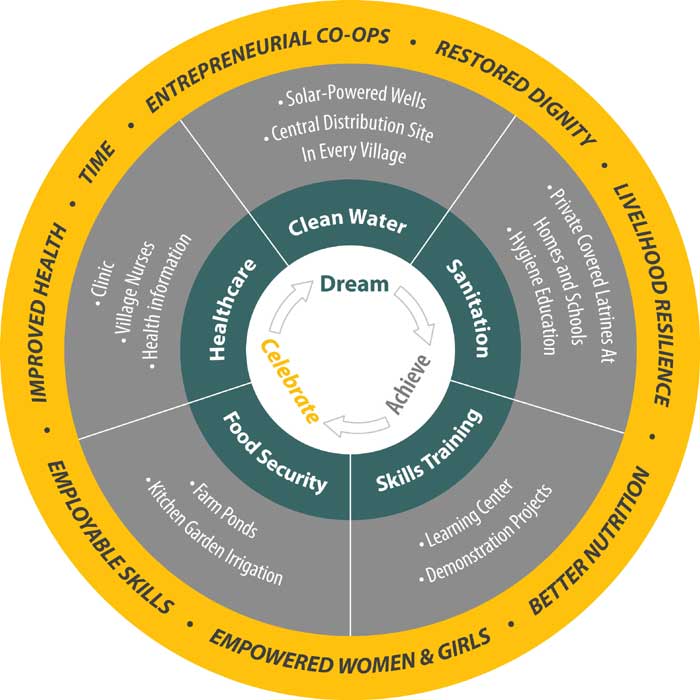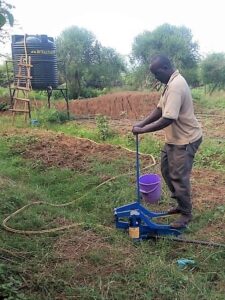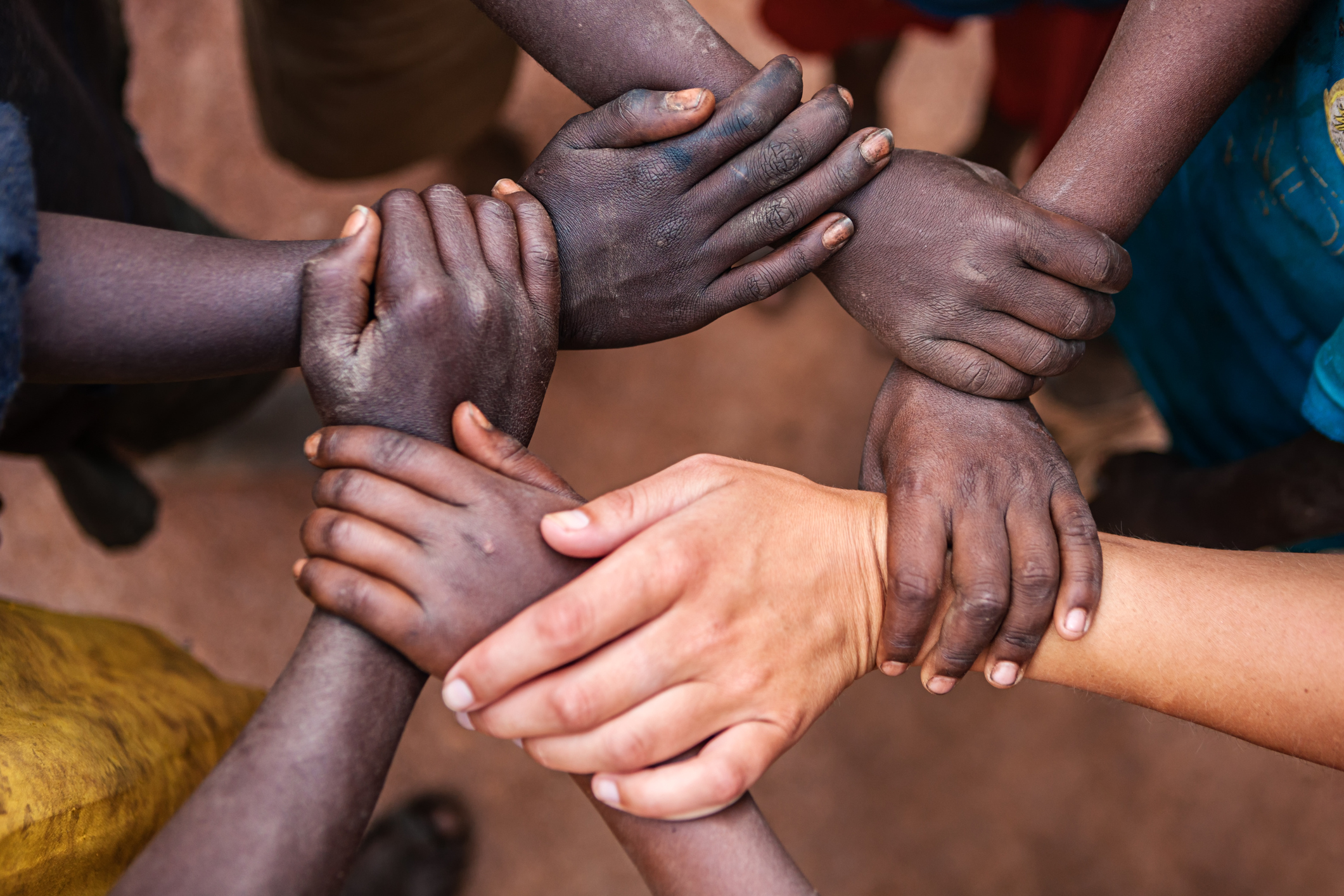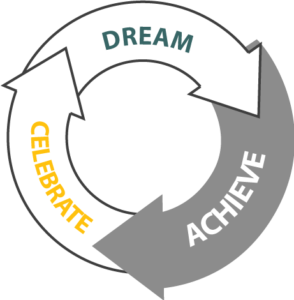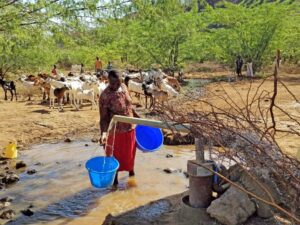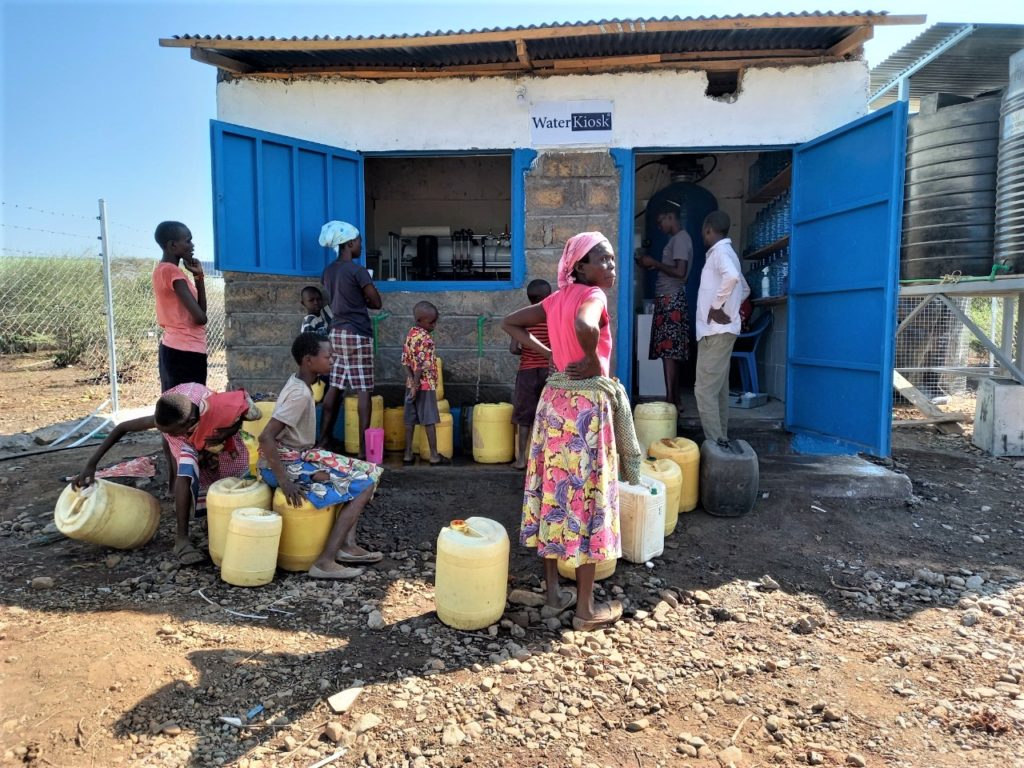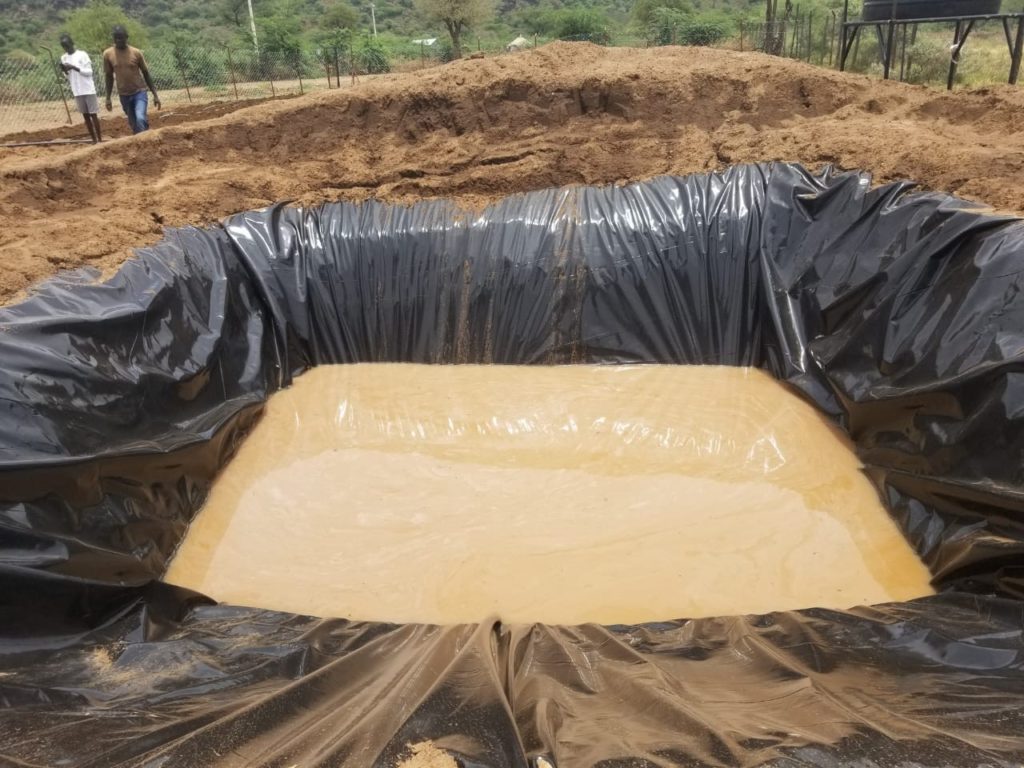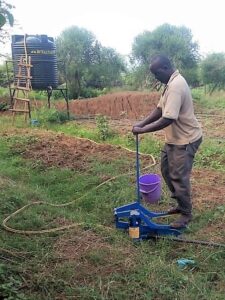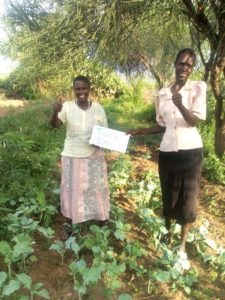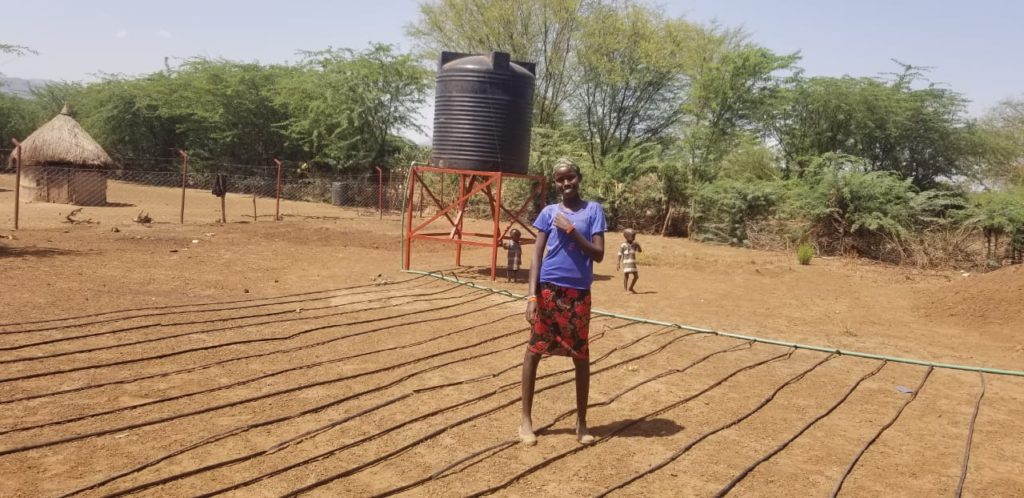When we first arrived in Kailer in 2016, clean water was non-existent in the village. Every aspect of the villagers’ lives was negatively impacted by lack of water. Providing resources to address this situation was the immediate priority. Our hope was to provide access to water by sinking wells, but this proved impossible. Kailer is a geo-thermal area (similar to Yellowstone in the U.S.) and the ground water is twice as salty as the ocean – making it lethal to drink for long periods of time for people and animals. The need was dire on many fronts; the solution challenging and expensive. But our goal never waivered – bring safe water within 15-minutes of every homestead in Kailer.
OUR SAFE WATER TIMELINE
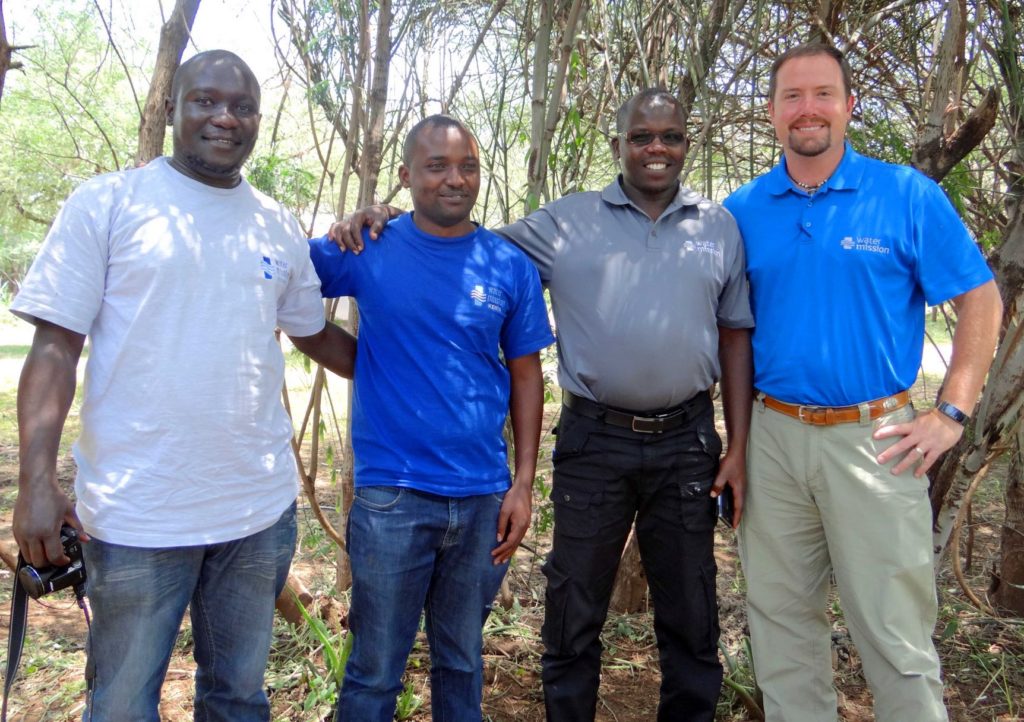 |
2017 – VVI began a partnership with Water Mission (WM), a global hydro-engineering nonprofit headquartered in Charleston, SC. The Kenyan team (pictured here) conducted a hydro-geo survey and determined a reverse osmosis (RO) system was the only option to provide safe water to Kailer. A local water committee was elected to work with WM and serve as the voice of the community. 50% of the members had to be female to validate their status as leaders in the village. |
|
|
2018 & 2019 – The source of ground water for the project will come from an abandoned borehole that has enough water to meet the needs of the entire village. Currently, village women use it for washing clothes. The project will be built in phases. Phase I – construct a reverse osmosis (RO) system, solar-powered pumping station, storage tanks, treatment house, and lay piping to a central distribution tap ($200,000). VVI helped Kailer leadership establish a community-owned water co-op. Co-op rules will require families to pay a minimal fee for the water they use. This is NOT a charity project. The community understands they must take ownership for sustaining their own business. In the meantime, fundraising efforts began to provide the resources needed.
|
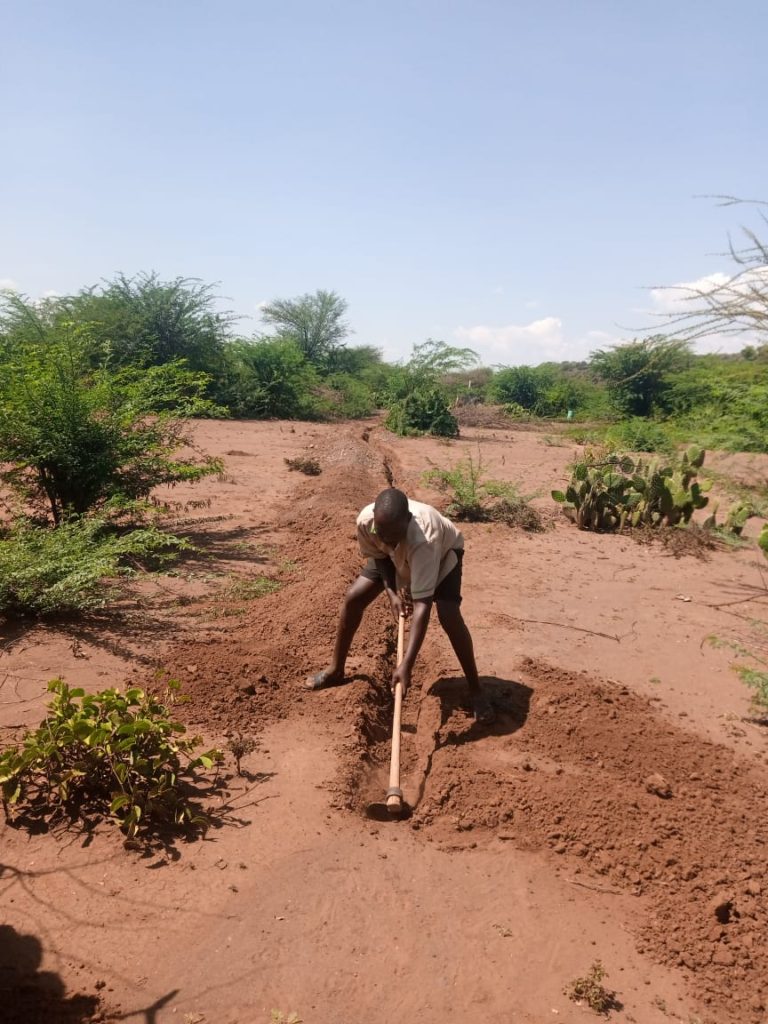 |
2020 – Funds were secured and Phase I initiated! An RO unit was manufactured in Germany. The community mobilized itself to hand-dig two miles of trench for piping – a back-breaking job but necessary for the village to contribute to the ownership of the project. The water committee expanded and successfully applied to the Kenyan government to be recognized as a registered nonprofit. The leadership group, now called the Kailer Safe Water Committee (KSWC), has full responsibility to own, operate and sustainably manage the co-op with mentoring from Water Mission and the VVI board.
|
|
|
2022 – In March, construction of Phase I was completed. Now 40% of the community lives close enough to the tap (Messiah tap) to obtain water in a healthier, more dignified way. Local women were hired by the co-op to serve as tap monitors. The system produced 755,000 liters of safe water between April and December (37,000 yellow jerry cans)! Efforts to raise funds for Phase II (additional storage and the equipment necessary to expand the co-op to include a water delivery service) began.
|
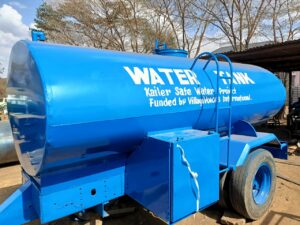 |
2023 – Generous donors provided the funds to purchase a 5,000L water bowser and a tractor for delivering co-op water to two free-standing storage units (built as a demonstration project) to serve areas of the village beyond walking distance to the Messiah tap. Water can also be delivered to tanks at the schools and church. An electric back-up power system to increase hours of production was installed at the end of this year- graciously funded by Rotary groups in Colorado and Ohio. |
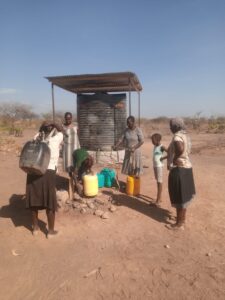 |
2024- The demonstation project proved successful for the people in the remote areas and the KSWC increased their competence in managing additional production and overhead. Nine more free-standing taps will be installed my mid-year. The goal of having safe water within 15-minutes of every homestead in Kailer will be met by June this year! Girls are staying in school and people are healthier. Villagers are being employed as tap operators, tractor drivers, and system management. Having access to water is improving the resilience of this community.
|
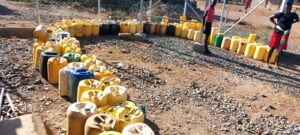 |
Since March of 2022, the Kailer Safe Water Project has produced almost 2 million liters of water – enough to fill over 100,000 jerry cans of safe drinking water for the villagers. It is their dream come true and everyone involved with the project is most grateful to our donors who made it possible! |
If you’d like to help us transform more lives, please click here.
Healthy hygiene and improved sanitation depend on having access to clean water
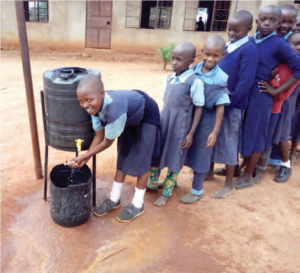 WASH (Water and Sanitation, Hygiene) is a natural extension of any clean water project. Village Voices will incorporate proper hygiene techniques as part of an overall training program for villagers after the water system is installed to decrease the incidence of water-borne diseases. A culturally sensitive train-the-trainer program will be created in coordination with village leadership and Water Mission.
WASH (Water and Sanitation, Hygiene) is a natural extension of any clean water project. Village Voices will incorporate proper hygiene techniques as part of an overall training program for villagers after the water system is installed to decrease the incidence of water-borne diseases. A culturally sensitive train-the-trainer program will be created in coordination with village leadership and Water Mission.
There are no school toilets in Kailer. The students must use the bush to relieve themselves. This particularly impacts adolescent girls who are embarrassed, especially during menses, to go to the bathroom outside – so they stay home a week every month and get behind in their school work or they endure painful urinary tract infections from waiting so long to go. Often they drop out of school entirely. Building private toilets for boys and girls with access to a faucet for drinking and hand-washing could solve a myriad of issues.
VVI will have discussions with village leadership and Water Mission about installing private latrines as a demonstration project at a limited number of homesteads. This is a new concept for the Ilchamus and a culturally sensitive one for a variety of reasons. Kailer women on the Health & Sanitation Committee will decide on the location of the latrines and monitor acceptance of the toilets from the villagers’ perspective. The program can be scaled for wider use if acceptable to the village and funding is available.
Healthier lives and safer childbirth are predicated on access to safe water, medical care and health information. The closest clinic to Kailer is 14 miles away. Access to antibiotics and malaria treatment is difficult and expensive. There is limited understanding about hygiene, transmission of diseases and immunizations. Pregnant women with complications must ride on a motorbike for miles to get help and some relate losing their babies on the side of the road. Straddling the line between traditions ways and modern medicine is culturally challenging. There is minimal healthcare infrastructure provided by the government. Access to healthcare will build another level of community self-sufficiency and promote a better quality of life for adults and children.
OUR HEALTHCARE TIMELINE
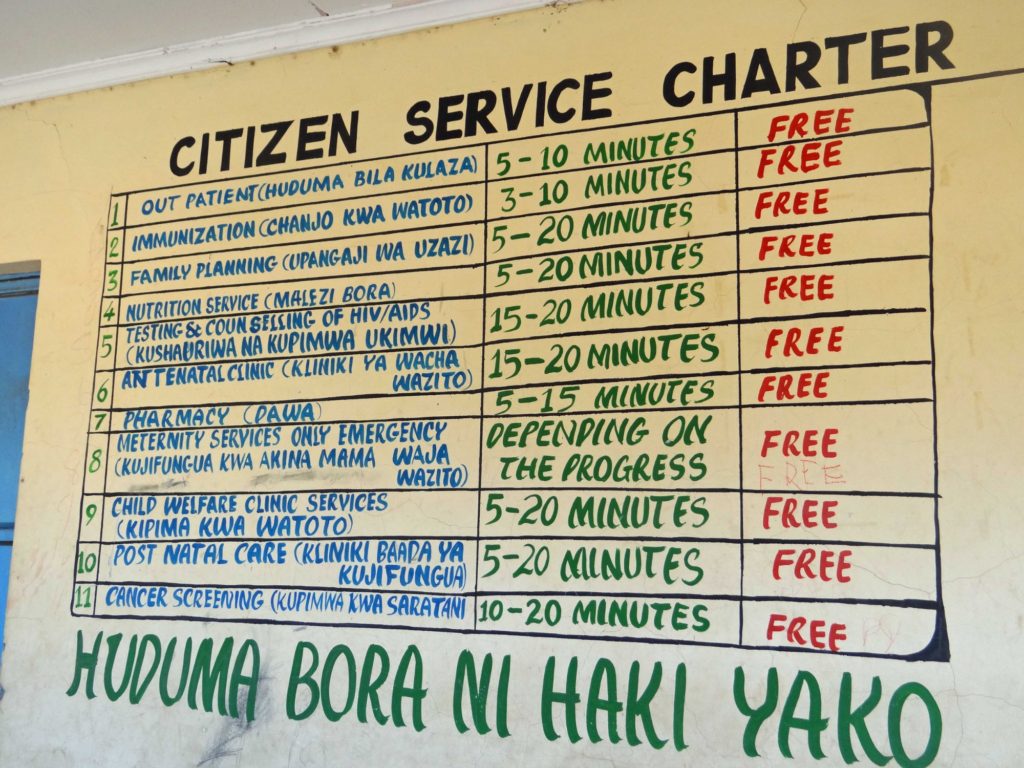 |
2017 – A village-elected Health Committee, composed primarily of women, was formed to identify the community’s health-related concerns, offer culturally-sensitive recommendations and promote villager buy-in for proposed activities. Financially supporting local women in a healthcare training program was determined to be the initial focus of the initiative. |
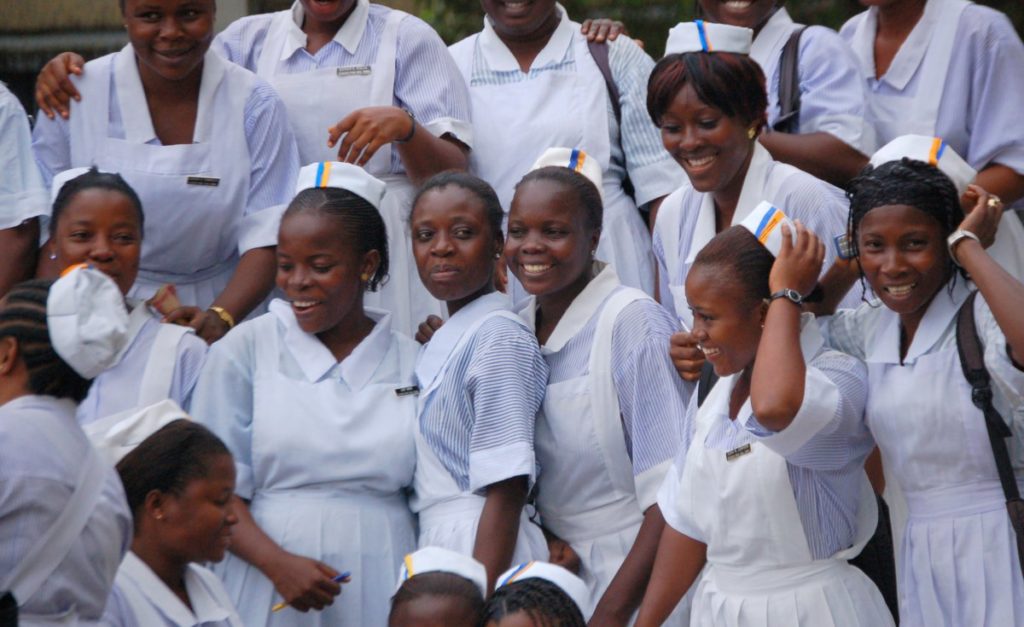 |
2018 – The search began for young Kailer women interested in serving their village as nurses. Many expressed interest in the opportunity. Unfortunately, none of those interested met the minimum admission criteria for nursing school. Most young Kailer women do not complete secondary school because of the need to help their mother’s fetch and/or early marriage. Very few speak English, putting them at a distinct disadvantage. |
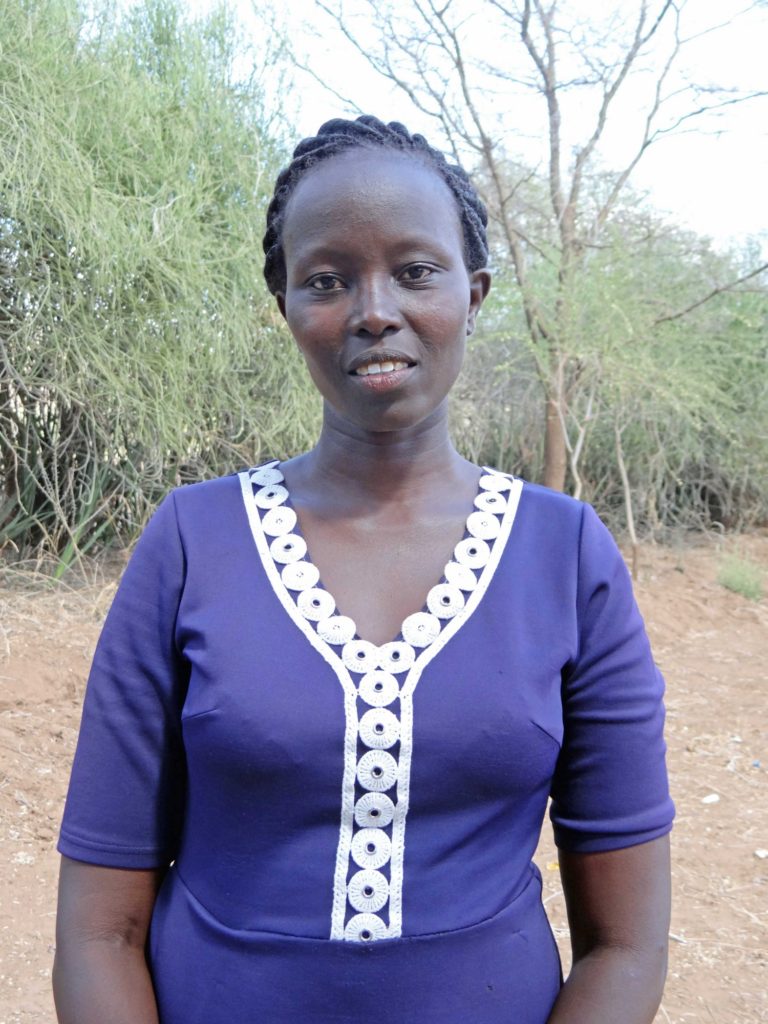 |
2019 – VVI and village leadership changed course and decided to search for candidates qualified to train as Community Health Assistants. Jackline Maitano (pictured here) was selected by the community for the two-year program. She will leave her 3-year-old son to go to school 5-hours from her Kailer homestead for this opportunity. She is happy to make this sacrifice and will begin her studies in 2020. VVI donations will pay her tuition at the Kenyan Medical Training College and provide funds for board and food. She has signed a commitment letter with village leaders to remain in Kailer to serve her community after graduation.
|
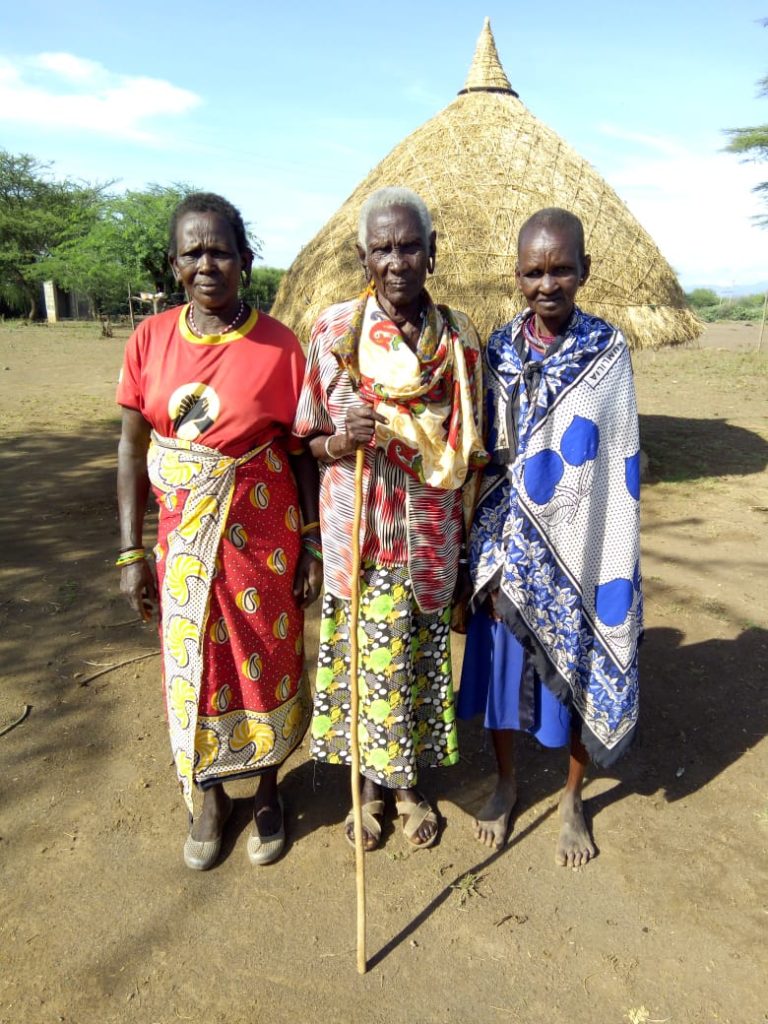 |
Also in 2019, VVI co-founder, Jackie Shaffer, met with a large group of village women and the highly-respected midwives (pictured here) to discuss women’s health issues including birthing practices in the village. The midwives follow centuries-old methods for caring for women before and after childbirth, but they agreed to consider certain conventional ideas such as including improved hygiene into their traditional practices. The nurses at the Catholic Mission 14-miles away will provide culturally sensitive instruction to the midwives who are illiterate but very proud women. Healthcare providers from outside the village have much to learn from these extraordinary women. |
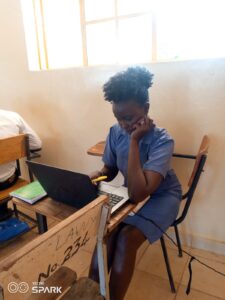 |
2020 – In March, Jackline arrived at the Kenyan Medical Training College but classes were immediately interrupted by the coronavirus shut-down. 2021 – Jackline returned to campus to begin her studies. She had never lived outside Kailer, seen a computer or the internet. Her life had been composed of fetching water and surviving. Yet, she completed her first two semesters with excellent grades and will be enrolled in an internship program at a county-level hospital in the fall. She expects to graduate in August 2022 and remains excited for her future and the contributions she will make to her community’s welfare.
|
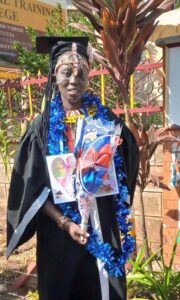 |
2022 – Jackline graduated with a certificate in Community Health and attended the ceremony in Nairobi – her first trip to a big city. She is consumed with obtaining additional knowledge. VVI extended the opportunity to continue in school for two more years to attain her diploma. This will increase the skills she’ll bring to Kailer upon graduation in 2024. Jackline has blossomed with confidence. She is already serving as a model for young Kailer girls to stay in school and a source of health information to women when she is home for school breaks. |
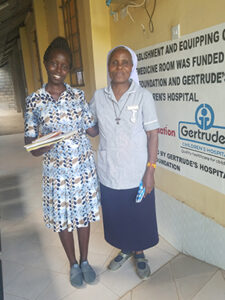 |
2023 – VVI is in discussions with Sister Mary Monari, the Director of the Marigat Catholic Health Mission (pictured here with Jackline) to partner on the healthcare situation in Kailer. She has agreed to mentor Jackline upon graduation and provide her the opportunity to serve as the Community Advocate/Mobilizer in Kailer – a valuable role in remote communities where desensitization to modern medicine must occur for village acceptance and sustainable participation. VVI will assist in funding this effort. The ultimate goal is for Jackline is to work with nurses from the clinic to advocate for and provide health information, wellness checks, prenatal care, medical triage and basic medications and immunizations to the villagers who already know and trust her. Jackline’s personal interest involves addressing period poverty in her village. VVI will pursue this important issue and seek resources in 2024.
|
If you’d like to help us improve healthcare in Kailer, please click here.
With the unprecedented, years-long drought in Kenya, food insecurity is a serious issue. The Ilchamus are semi-pastoralists who rely on livestock and rain-fed subsistence farming for their survival. This puts them at risk from the severe effects of climate change because they do not have the resources or knowledge of dry-farming methods for building resilience to lack of rain. VVI made an attempt to address this issue with the construction of kitchen gardens, as a demonstration project. They were wildly successful (for 18-months) until the water ran out of the farm ponds; the gardens were once again rain-dependent. An alternative solution has been proposed by one of the farmers. Read below to learn more.
OUR FOOD SECURITY TIMELINE
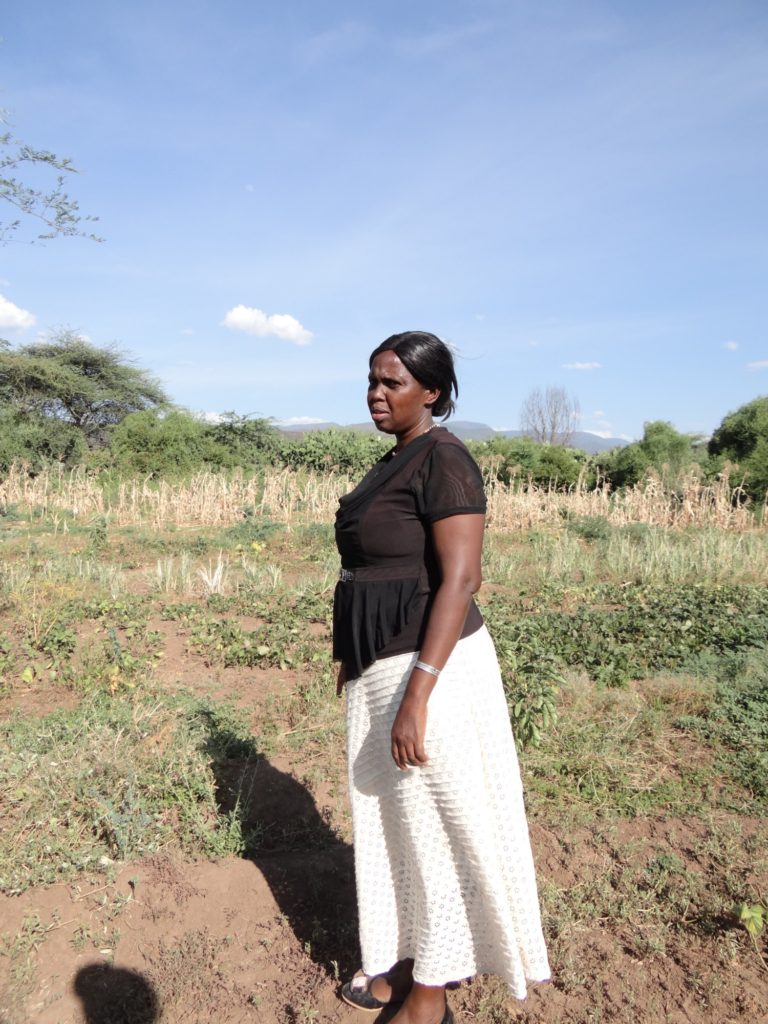 |
2017 – Women have tried unsuccessfully for years to grow vegetables for their family table. This is Esther’s attempt at maize farming this year. A female-led Food Security Committee was formed to work with VVI on developing a micro-irrigation demonstration project. The drought has had such a dramatic impact on food security that children are eating cornpaste (ugali) twice a day and adults often eat every other day to conserve food resources. The situation is dire. |
|
|
2019 – VVI board members traveled to Kenya to visit a micro-irrigation project in Yatta. They met with the Arid Lands Information Network in Nairobi, and visited with Ilchamus women in a neighboring village to tour their small farm to learn about dry farming methods and best practices for the Kailer region. Because the severe drought has created a critical food shortage, the VVI board decided to proceed with the kitchen garden demonstration project ahead of schedule rather than waiting until funding is completed for the water system. Two women were selected by the village to serve as recipients of the first demonstration gardens. In November, 2019 the villagers dug 2 farm ponds by hand. Water that would normally be lost in run-off was harvested from a torrential downpour. A foot-powered pump attached to a water storage tank was installed, along with drip irrigation kits and fencing to keep wild animals out of the 1/4 acre gardens. |
|
|
2020 – By April, Javina and Esther (shown here) are harvesting vegetables from their gardens. They are now growing nutritious food for their own family tables plus enough to share with neighbors. Esther is selling excess produce at the market. Neither woman had to buy food this year – saving about $1.00/day each – enough to pay school fees or buy water when the co-op is underway. Esther and Javina were able to harvest from four successive plantings, adopt a saving scheme for season-to-season sustainability and purchase new drip kits from their own proceeds. They are sharing their new skills with the other villagers. Good news of the gardens reached the World Food Program (recipient of the 2020 Nobel Peace Prize) and representatives made a visit to Kailer to witness for themselves the success of the farmers. |
|
|
2021- The impact of the demonstration gardens was so dramatic that VVI supported the installation of 4 more this year. The photo to the left shows one of the beneficiaries with the drip irrigation set-up – ready for planting when rains fill her farm pond. Unfortunately, the wait has been long since there’s been no rain for a year. By 2023, still no measurable rain. Despite the best efforts of all involved, the gardens remained dormant and rain-dependent. It was decided to abandon the plan for additional gardens and brainstorm other possibilities to address food insecurity. |
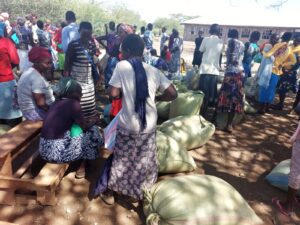 |
In the meantime, VVI funded the purchase of 6-tons of grain to offset the starvation occuring in the village. Caroline Lentupuru coordinated the distritution of the corn. |
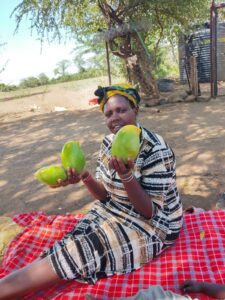 |
One success story coming out of the kitchen garden demonstration project was Esther’s mango crop. She planted 5 mango trees in 2022, watered them by hand with discarded household water from cooking and laundry. They thrived. In 2023, she harvested tons of the fruit and sold it to shop-keepers in the nearest town. With the revenue, Esther was able to pay school fees for her youngest child and purchase (rather grow food) for her family table. Esther has proposed mango production at the community level as an alternative to kitchen gardens. The Ilchamus Community Development Organization is in the process of writing a formal proposal for consideration of the VVI board to fund 5 mango plants for every family in Kailer – establishing a mango co-op for economic and social development. Stay tuned! |
If you’d like to help improve the food in Kailer by contributing to new kitchen gardens, please click here.
Village Voices has emphasized building resilience in the community by concentrating on skills needed within the village – so those who become educated don’t need to leave the community to find employment elsewhere.
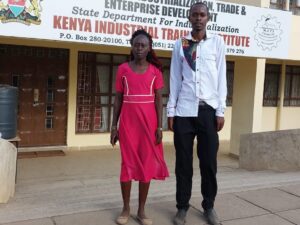 |
In 2020, a generous VVI donor provided the funds to send two Kailer villagers for skills training to become an electrician and a plumber. This will be the first time these services have been available within the village – providing timely maintenance for the reverse osmosis system and another step toward building livelihood enhancement in Kailer. The scholarship recipients were selected by village leadership. Covid delayed the start of their education, but in September 2021, Juston Murtus (electrician candidate) and a WOMAN, Judy Makatio (plumber candidate), began their training at the Kenya Industrial Institute in Nakuru town with much enthusiasm. Both Juston and Judy left their families to live in another town for 2-years to take advantage of this opportunity. Both of them graduated in 2023 with their respective certificates. |
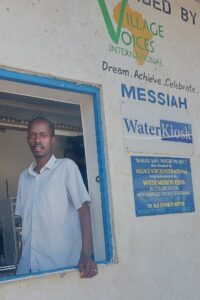 |
In 2024, Justus diagnosed and performed the repair work on the electric source powering the reverse osmosis unit – eliminating delays in obtaining help outside the village AND preventing costly down-time for the system. Judy is employed as a plumbing assitant to the contractor constructing the new free-standing taps across Kailer. Their lives, the lives of their families and the capability of the village to manage their own challenges is proving transformative. |
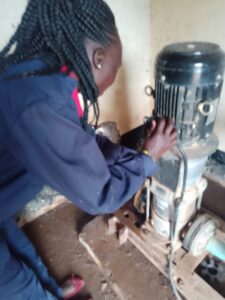 |
I |
If you’d like to help transform more lives, you can donate now by clicking here.
